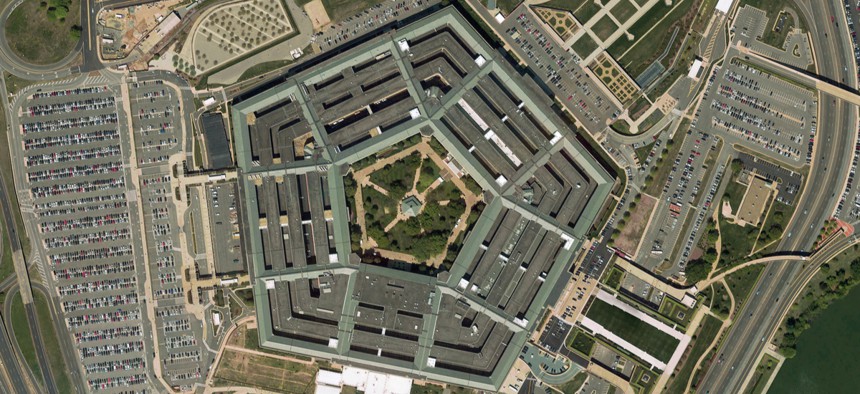Pentagon Awards JEDI Cloud Contract to Microsoft for the Second Time

gokturk_06/Shutterstock.com
The decision follows a months-long legal challenge filed by Amazon Web Services.
The Pentagon awarded its Joint Enterprise Defense Infrastructure cloud computing contract Friday to Microsoft.
The decision follows a 10-month legal battle initiated by Amazon Web Services after the Pentagon selected Microsoft in October 2019 for the contract, worth up to $10 billion over the next 10 years if all options are exercised.
The award comes after numerous controversies and delays for JEDI—in addition to four legal protests filed by companies once in the running for it—that has the contract two years behind schedule.
“The Department has completed its comprehensive re-evaluation of the JEDI Cloud proposals and determined that Microsoft's proposal continues to represent the best value to the government,” the department said in a statement Friday.
The Defense Department first requested information about purchasing a commercial enterprise cloud in 2017, but the procurement hit delay after delay. The department’s choice to purchase from a single company, rather than multiple providers, sparked controversy immediately. Stories of alleged conflicts of interest by department officials resulted in internal department reviews, lawmaker inquiries, bid protests and legal challenges.
After the Pentagon first awarded JEDI to Microsoft, AWS, once considered the frontrunner for JEDI because of its existing government contracts with the intelligence community, filed its lawsuit in November. AWS’ protest included allegations of a botched evaluation process, identifying errors in six evaluation criteria and political interference on the president’s part that tilted the scales toward Microsoft. In granting an injunction on the contract in March, Federal Judge Patricia Campbell-Smith said AWS was “quite likely” to prove the Pentagon made an evaluation error. Attorneys for Microsoft and the Pentagon, meanwhile, have accused AWS of wanting a do-over. The legal battle subsided after the Pentagon acknowledged errors in the procurement and pulled the award to make corrections and accept new bids from both companies.
“We appreciate that after careful review, the DoD confirmed that we offered the right technology and the best value,” a Microsoft spokesperson told Nextgov in a statement. “We’re ready to get to work and make sure that those who serve our country have access to this much needed technology.”
But Friday’s statement notes this is not the end of the saga, as a court-ordered injunction from February remains in place.
“While contract performance will not begin immediately due to the preliminary injunction order issued by the Court of Federal Claims on February 13, 2020, DoD is eager to begin delivering this capability to our men and women in uniform,” the statement reads.
“While contract performance will not begin immediately due to the preliminary injunction order issued by the Court of Federal Claims on February 13, 2020, DoD is eager to begin delivering this capability to our men and women in uniform,” the statement reads.
AWS had also argued in previous legal filings and publicly that the Pentagon’s proposed corrective action was too narrow and that “DoD does not meaningfully commit to reconsider the other evaluation errors identified in the protest.”
AWS responded to Friday’s news with a blog post entitled, “JEDI: Why We Will Continue to Protest this Politically Corrupted Contract Award.”
“When the DoD announced its plans for corrective action in March, we objected because it was clear this was nothing more than a ‘do-over’ for Microsoft to fix its non-compliant proposal,” the AWS Public Sector Blog Team wrote in the post. “That is exactly where we find ourselves today, with the DoD’s re-evaluation nothing more than an attempt to validate a flawed, biased, and politically corrupted decision.”
The post also cites one of DOD’s evaluation criteria—Microsoft’s lower bid—as no longer an issue, as AWS “offered a lower cost by several tens of millions of dollars” in the second bid proposal.
AWS promised to continue fighting the award decision in the courts.
“Throughout the litigation, we have grown more confident in our position as more information has come to light—some of this information has been made public, other parts not yet,” the blog reads. “Although these are not easy decisions to make, and we do not take them lightly, we will not back down in the face of targeted political cronyism or illusory corrective actions, and we will continue pursuing a fair, objective, and impartial review.”
NEXT STORY: DOD affirms JEDI award to Microsoft





